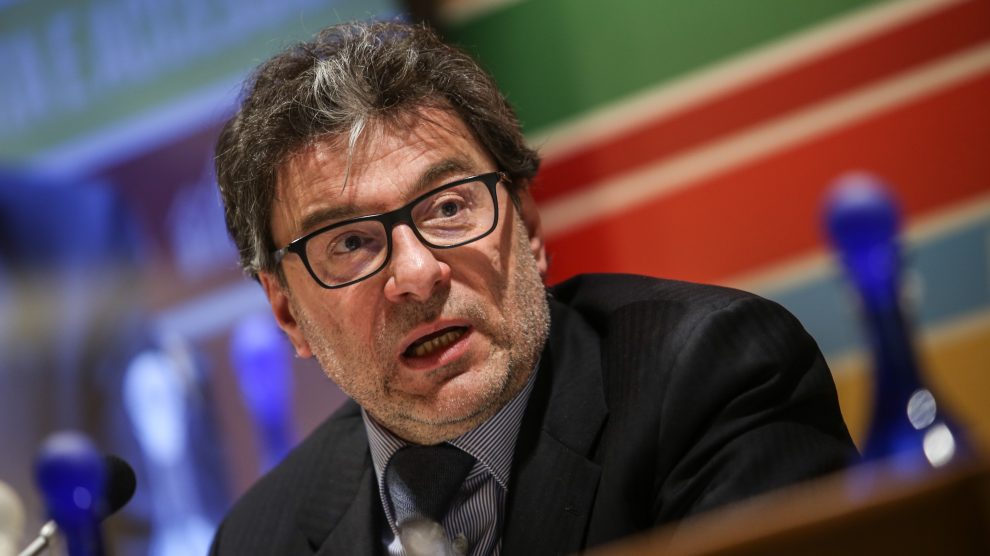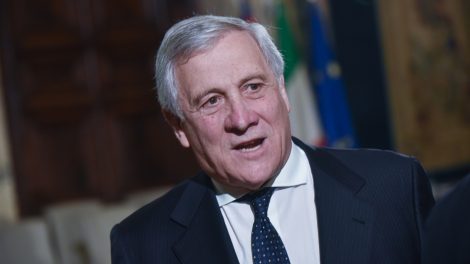What’s up: the Italian Economic Development Minister, Giancarlo Giorgetti, expressed support for reviving the halted EastMed gas pipeline project between Italy and Israel. The project is being reconsidered, as Decode39 anticipated, following Russia’s invasion of Ukraine.
- On Monday, Mr Giorgetti met with Israeli Energy Minister Karine Elharrar in Jerusalem to discuss collaborations in energy (chiefly renewables, hydrogen and natural gas) and infrastructures.
- Following that meeting, he declared that “Israel has proved to be an important partner for diversifying energy supplies, including through [liquefied natural gas].”
- This visit demonstrates that the Italian government is indeed working on the project.
Strategic pathways. “The crisis we are experiencing is not only an economic one,” he said, referring to the consequences of the Russian invasion of Ukraine. He added that Italy’s position in the Mediterranean will be “central” in the near future, and suggested the country could become “the strategic gateway for the passage of gas and other energy sources to Europe.”
- A statement later noted the shared willingness to collaborate on the development of renewable energy, the green transition for industry emerged during the talks with his Israeli partners.
Hence, EastMed. Research into the production and transport of green hydrogen could give infrastructure projects such as the 1.900-km pipeline a newfound standing.
- EastMed connects the Levantine Basin in the eastern Mediterranean (enclosed by Israel, Egypt and Cyprus) to Apulia, in Southern Italy, through mainland Greece.
- Experts and industry insiders believe that the pipeline could be completed in about four years, granting Italy an initial flow of 10 billion cubic metres (bcm) of natural gas a year. That volume could double at a later stage.
The institutions are in. Several pieces of evidence are lining up to demonstrate that Rome (plus Washington and perhaps Brussels) is indeed working on the EastMed project. Apart from Mr Giorgetti’s visit,
- there’s a mention to EastMed in a recent interview on Il Sole 24 Ore to the Undersecretary of Foreign Affairs, Manlio Di Stefano, who is following Italy’s diversification efforts along with Foreign minister Luigi Di Maio.
- There’s also strong bipartisan pressure from Parliament.
- The left-leaning Democratic Party (including the vice-president of the European Parliament Pina Picierno) has been asking the government to resume the procedure for EastMed’s construction.
- Right-wing parties (the League and Brothers of Italy) also support the project, having filed relevant resolutions at the Chamber of Deputies. Mr Giorgetti himself is the League’s second-in-command.
- In recent weeks, the United States – which had halted the project citing reasons of economic sustainability – also signalled openness in light of the conflict in Ukraine.
- The European Commission has launched a feasibility study, as Italian Prime Minister Mario Draghi recalled recently.
Do you want chips with that? The ongoing dalliances between chipmakers – the Italo-French STM, the American Intel and the Israeli Tower Semiconductors – came into focus during Mr Giorgetti’s visit.
- On Sunday he met with Orna Barbivai, head of the Israeli Ministry of Economy and Industry, the heads of the Israeli Innovation Authority, the Italian-Israeli Chamber of Commerce and the Peres Center.
- He visited the plants of Tower Semiconductor, which will start production in Itali with STM by year’s end and was recently acquired by Intel (Mr Giorgetti assured the government’s support).
- He also set foot at Telecom Italia Sparkle and the non-profit Startup Nation Central.





